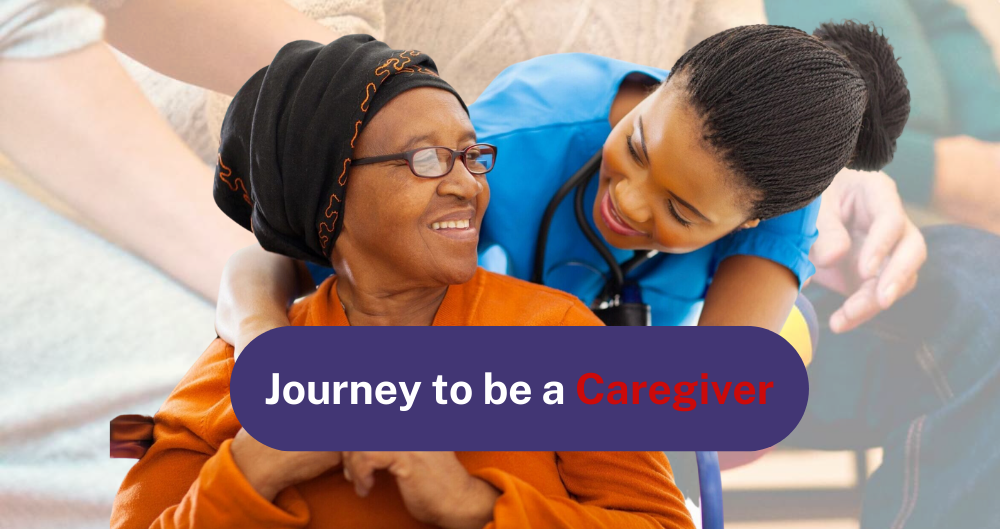How to Become a Caregiver

As a caregiver, you’ll have the privilege to contribute to people’s well-being. It's a career that makes a difference in others’ lives, bringing purpose to your own. If you seek both professional and personal growth, caregiving might be for you.
The COVID-19 pandemic has highlighted the importance of healthcare and caregiving professions. It sheds light on the essential role they play and why society always needs them. The popularity of caregiving stems from the rewards it gives. You can make a difference in someone's life and experience emotional fulfillment too.
Specialized Care Settings
Pediatric Care
- Personalized care (bathing, grooming, dressing)
- Meal preparation and feeding
- Ensuring safety and interaction
Elderly Care
- Personalized care (bathing, grooming, dressing)
- Medication administration
- Meal planning, preparation, and feeding
Hospice Care
- Compassionate care for terminally ill patients
- Emotional support for families
- Ensuring patient comfort and comprehensive care
Rehabilitation Centers
- Assisting recovery from surgeries or injuries
- Helping with mobility and exercise programs
- Providing emotional support and motivation
Adult Day Cares
- Personalized care (bathing, grooming, dressing)
- Supervision and interaction
How Much Does a Caregiver Make?
Caregivers enjoy a range of positive aspects when it comes to their salaries. Many caregivers receive competitive salaries, reflecting the valuable support they provide to individuals in need. According to BLS, the median annual wage for home health aides (HHA) and personal care aides in May 2021 was $29,430. Check out the table below to learn more about its percentile wage estimate two years ago.
The hourly wage percentiles for this occupation are as follows: at the 10th percentile, the wage is $10.82 per hour; at the 25th percentile, it's $13.03 per hour. The median hourly wage, which represents the 50th percentile, is $14.51. For those at the 75th percentile, the hourly wage is $16.40, while at the 90th percentile, it's $18.44 per hour.
In terms of annual wages, these percentiles translate to the following: at the 10th percentile, the annual wage is approximately $22,500. For those at the 25th percentile, it's around $27,100 annually. The median annual wage, representing the 50th percentile, is approximately $30,180. At the 75th percentile, the annual wage is approximately $34,110, and at the 90th percentile, it reaches approximately $38,350 annually.
Top-paying industries for caregivers
Working as a caregiver can steer you to various industries that need you. Having knowledge of these industries puts you one step ahead of your competitors. Aim for a specific industry up in your alley to maximize your income and seek opportunities that may benefit you. According to BLS, these are the top-paying industries for caregivers in May 2021:
In the field of Individual and Family Services, the annual wage is approximately $29,670. For those working in Continuing Care Retirement Communities and Assisted Living Facilities for the Elderly, the annual wage is around $29,140. In the Home Healthcare Services sector, the annual wage is approximately $28,630.
Final Thoughts
The specific requirements to become a caregiver may vary depending on the state and employer. Generally, becoming a caregiver involves obtaining relevant training, such as completing a caregiver training program, acquiring CPR and first aid certification, and meeting any additional requirements set by the hiring agency or organization.
Becoming a caregiver requires skills and a genuine commitment to helping others. To embark on this rewarding path, individuals can explore various possible avenues. It could be through seeking formal training or certifications. Gaining experience through volunteering is also one. Remember that caregiving isn't only about physical care but also about emotional connection.
Dreambound has written dozens of in-depth guides on how to get started in this field, with information specific to your city. If you're located somewhere else or thinking about moving, check out some other guides we've written:

Vduani Martinez is a part of the Growth team at Dreambound. She creates and fixes workflows and automation to guarantee seamless operations. On top of that, she manages databases to ensure all information is up to date. Vduani is a licensed Electronics Engineer who loves coffee and is a travel enthusiast. Out of the office, she enjoys going on road trips and discovering new cafes and restaurants.




